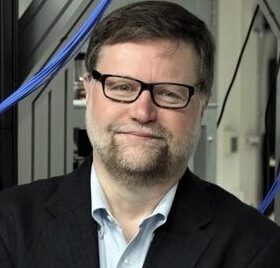A selection of the most important recent news, articles, and papers about quantum computing.
News, Articles, and Analyses
The Long-Term Forecast for Quantum Computing Still Looks Bright – Boston Consulting Group
Authors: Jean-François Bobier; Matt Langione; Cassia Naudet-Baulieu; Zheng Cui; and Eitoku Watanabe
“Is quantum computing finally nearing the point where it can fulfill its transformative potential? The answer, right now, is mixed.”
Quantum June 2024 Monthly Market Snapshot Report – The Futurum Group
Author: Dr. Bob Sutor
“Learn about market & tech developments in the quantum computing industry in June 2024, including improved qubits and product sales & delivery.”
Technical Papers and Preprints
Physics – Mechanical Coupling to Spin Qubits
(Wednesday, June 26, 2024) “A vibrating nanobeam could be used to share information between distant solid-state spin qubits, potentially allowing use of these qubits in complex computations.”
Physics – Measuring Qubits with “Time Travel” Protocol
(Thursday, June 27, 2024) “Quantum sensing can benefit from entanglement protocols that can be interpreted as allowing qubits to go backward in time to choose an optimal initial state.”
[2407.13012] CUAOA: A Novel CUDA-Accelerated Simulation Framework for the QAOA
Authors: Stein, Jonas; Blenninger, Jonas; Bucher, David; Eder, Josef Peter; Çetiner, Elif; Zorn, Maximilian; Linnhoff-Popien, Claudia
 (Wednesday, July 17, 2024) “The Quantum Approximate Optimization Algorithm (QAOA) is a prominent quantum algorithm designed to find approximate solutions to combinatorial optimization problems, which are challenging for classical computers. In the current era, where quantum hardware is constrained by noise and limited qubit availability, simulating the QAOA remains essential for research. However, existing state-of-the-art simulation frameworks suffer from long execution times or lack comprehensive functionality, usability, and versatility, often requiring users to implement essential features themselves. Additionally, these frameworks are primarily restricted to Python, limiting their use in safer and faster languages like Rust, which offer, e.g., advanced parallelization capabilities. In this paper, we develop a GPU accelerated QAOA simulation framework utilizing the NVIDIA CUDA toolkit. This framework offers a complete interface for QAOA simulations, enabling the calculation of (exact) expectation values, direct access to the statevector, fast sampling, and high-performance optimization methods using an advanced state-of-the-art gradient calculation technique. The framework is designed for use in Python and Rust, providing flexibility for integration into a wide range of applications, including those requiring fast algorithm implementations leveraging QAOA at its core. The new framework’s performance is rigorously benchmarked on the MaxCut problem and compared against the current state-of-the-art general-purpose quantum circuit simulation frameworks Qiskit and Pennylane as well as the specialized QAOA simulation tool QOKit. Our evaluation shows that our approach outperforms the existing state-of-the-art solutions in terms of runtime up to multiple orders of magnitude. Our implementation is publicly available at https://github.com/JFLXB/cuaoa and Zenodo.”
(Wednesday, July 17, 2024) “The Quantum Approximate Optimization Algorithm (QAOA) is a prominent quantum algorithm designed to find approximate solutions to combinatorial optimization problems, which are challenging for classical computers. In the current era, where quantum hardware is constrained by noise and limited qubit availability, simulating the QAOA remains essential for research. However, existing state-of-the-art simulation frameworks suffer from long execution times or lack comprehensive functionality, usability, and versatility, often requiring users to implement essential features themselves. Additionally, these frameworks are primarily restricted to Python, limiting their use in safer and faster languages like Rust, which offer, e.g., advanced parallelization capabilities. In this paper, we develop a GPU accelerated QAOA simulation framework utilizing the NVIDIA CUDA toolkit. This framework offers a complete interface for QAOA simulations, enabling the calculation of (exact) expectation values, direct access to the statevector, fast sampling, and high-performance optimization methods using an advanced state-of-the-art gradient calculation technique. The framework is designed for use in Python and Rust, providing flexibility for integration into a wide range of applications, including those requiring fast algorithm implementations leveraging QAOA at its core. The new framework’s performance is rigorously benchmarked on the MaxCut problem and compared against the current state-of-the-art general-purpose quantum circuit simulation frameworks Qiskit and Pennylane as well as the specialized QAOA simulation tool QOKit. Our evaluation shows that our approach outperforms the existing state-of-the-art solutions in terms of runtime up to multiple orders of magnitude. Our implementation is publicly available at https://github.com/JFLXB/cuaoa and Zenodo.”
[2407.13616] Quantum Local Search for Traveling Salesman Problem with Path-Slicing Strategy
Authors: Liu, Chen-Yu; Matsuyama, Hiromichi; Huang, Wei-hao; Yamashiro, Yu
 (Thursday, July 18, 2024) “We present novel path-slicing strategies integrated with quantum local search to optimize solutions for the Traveling Salesman Problem (TSP), addressing the limitations of current Noisy Intermediate-Scale Quantum (NISQ) technologies. Our hybrid quantum-classical approach leverages classical path initialization and quantum optimization to effectively manage the computational challenges posed by the TSP. We explore various path slicing methods, including k-means and anti-k-means clustering, to divide the TSP into manageable subproblems. These are then solved using quantum or classical solvers. Our analysis, performed on multiple TSP instances from the TSPlib, demonstrates the ability of our strategies to achieve near-optimal solutions efficiently, highlighting significant improvements in solving efficiency and resource utilization. This approach paves the way for future applications in larger combinatorial optimization scenarios, advancing the field of quantum optimization.”
(Thursday, July 18, 2024) “We present novel path-slicing strategies integrated with quantum local search to optimize solutions for the Traveling Salesman Problem (TSP), addressing the limitations of current Noisy Intermediate-Scale Quantum (NISQ) technologies. Our hybrid quantum-classical approach leverages classical path initialization and quantum optimization to effectively manage the computational challenges posed by the TSP. We explore various path slicing methods, including k-means and anti-k-means clustering, to divide the TSP into manageable subproblems. These are then solved using quantum or classical solvers. Our analysis, performed on multiple TSP instances from the TSPlib, demonstrates the ability of our strategies to achieve near-optimal solutions efficiently, highlighting significant improvements in solving efficiency and resource utilization. This approach paves the way for future applications in larger combinatorial optimization scenarios, advancing the field of quantum optimization.”




